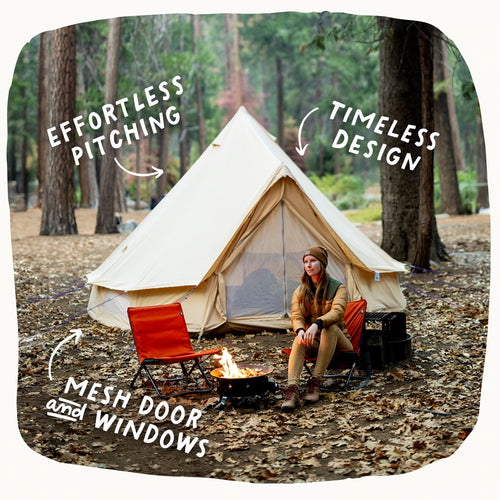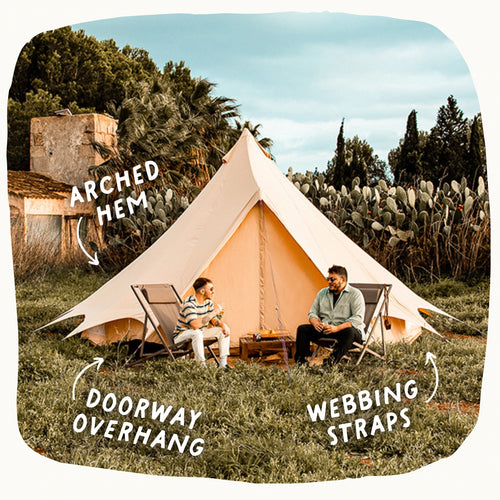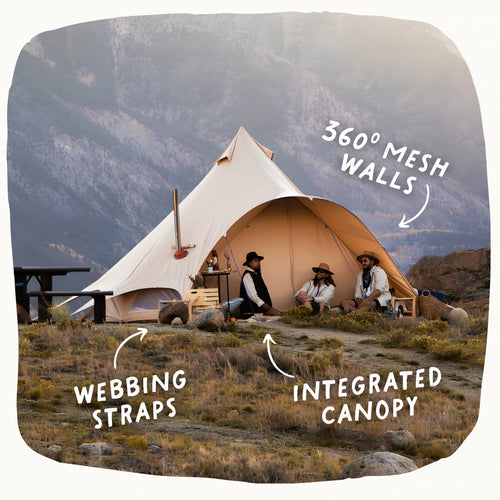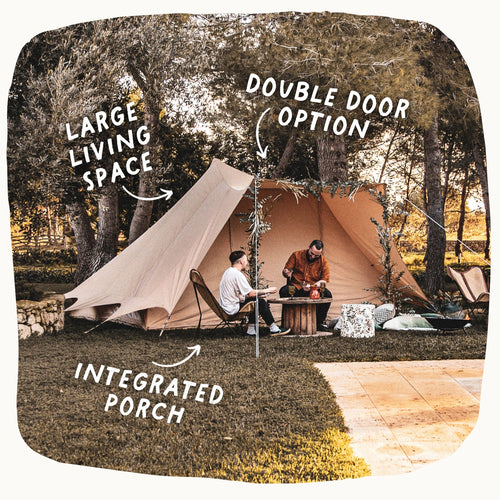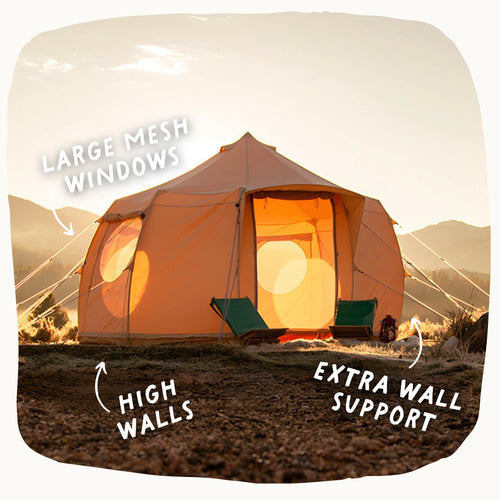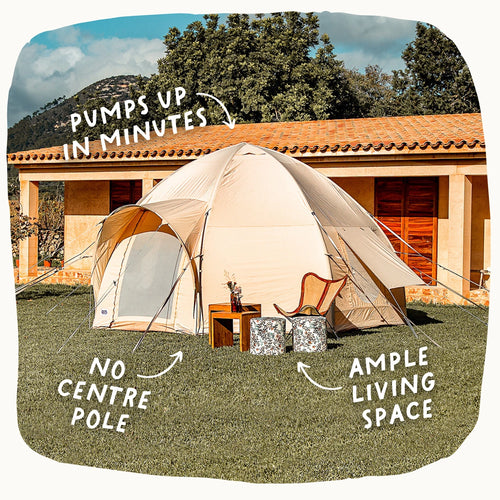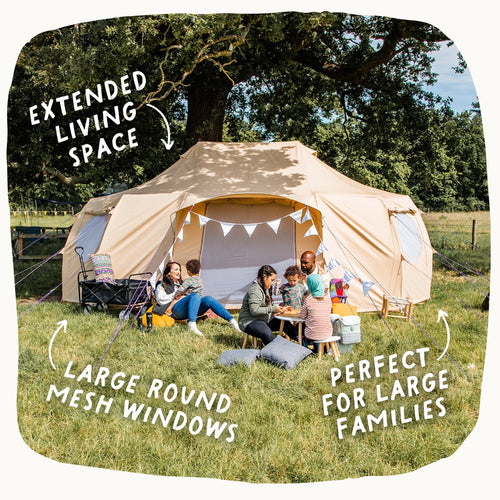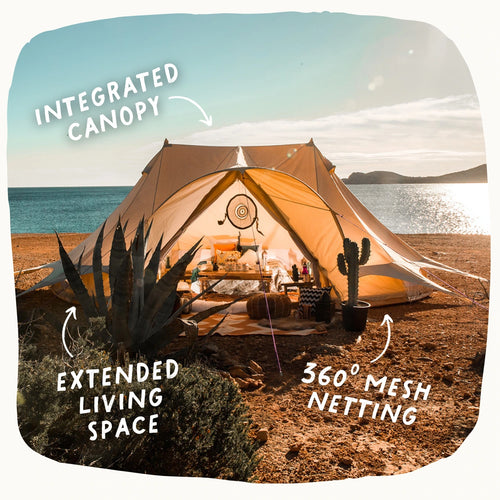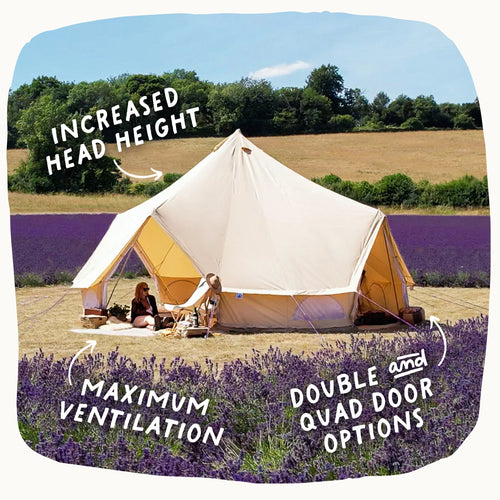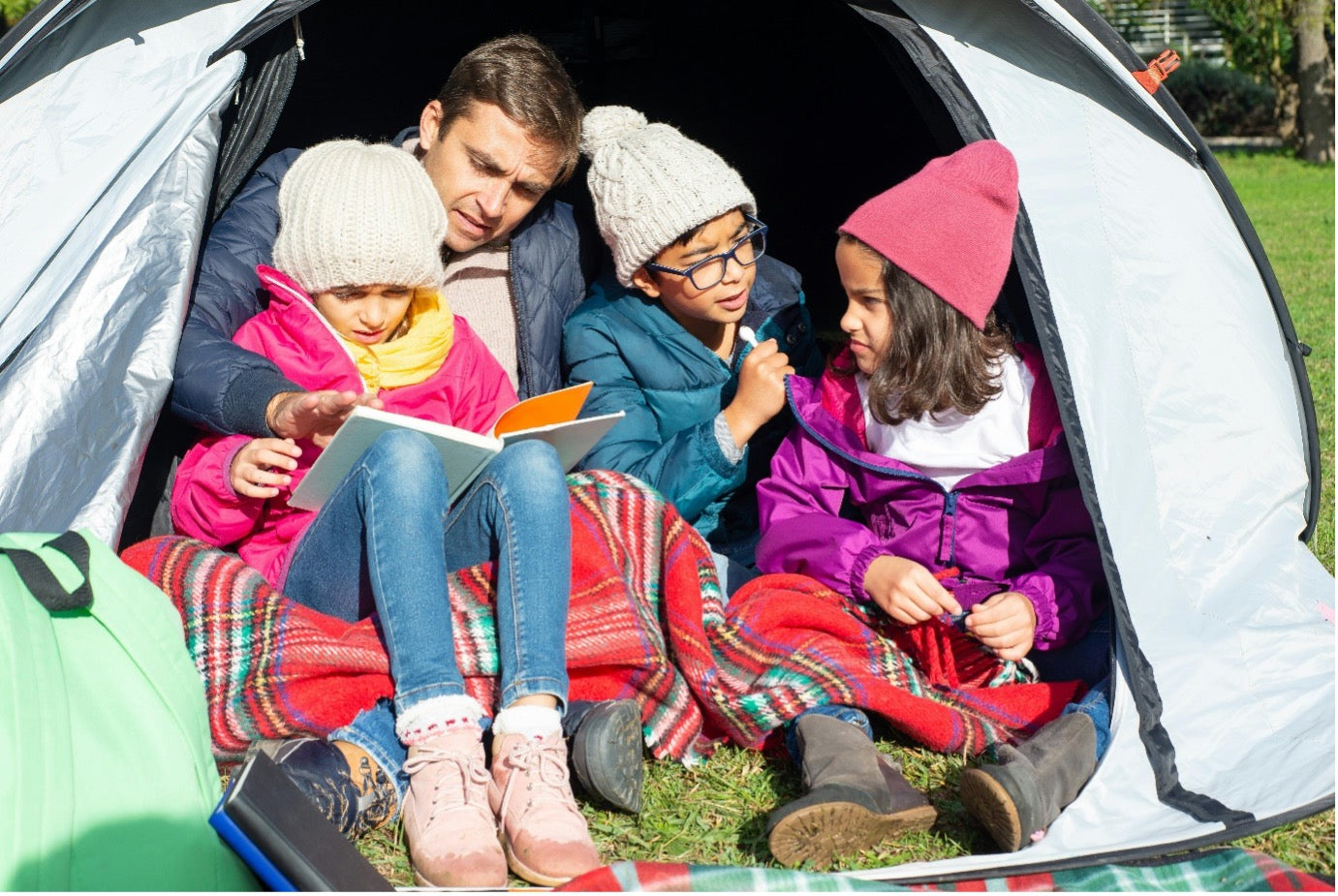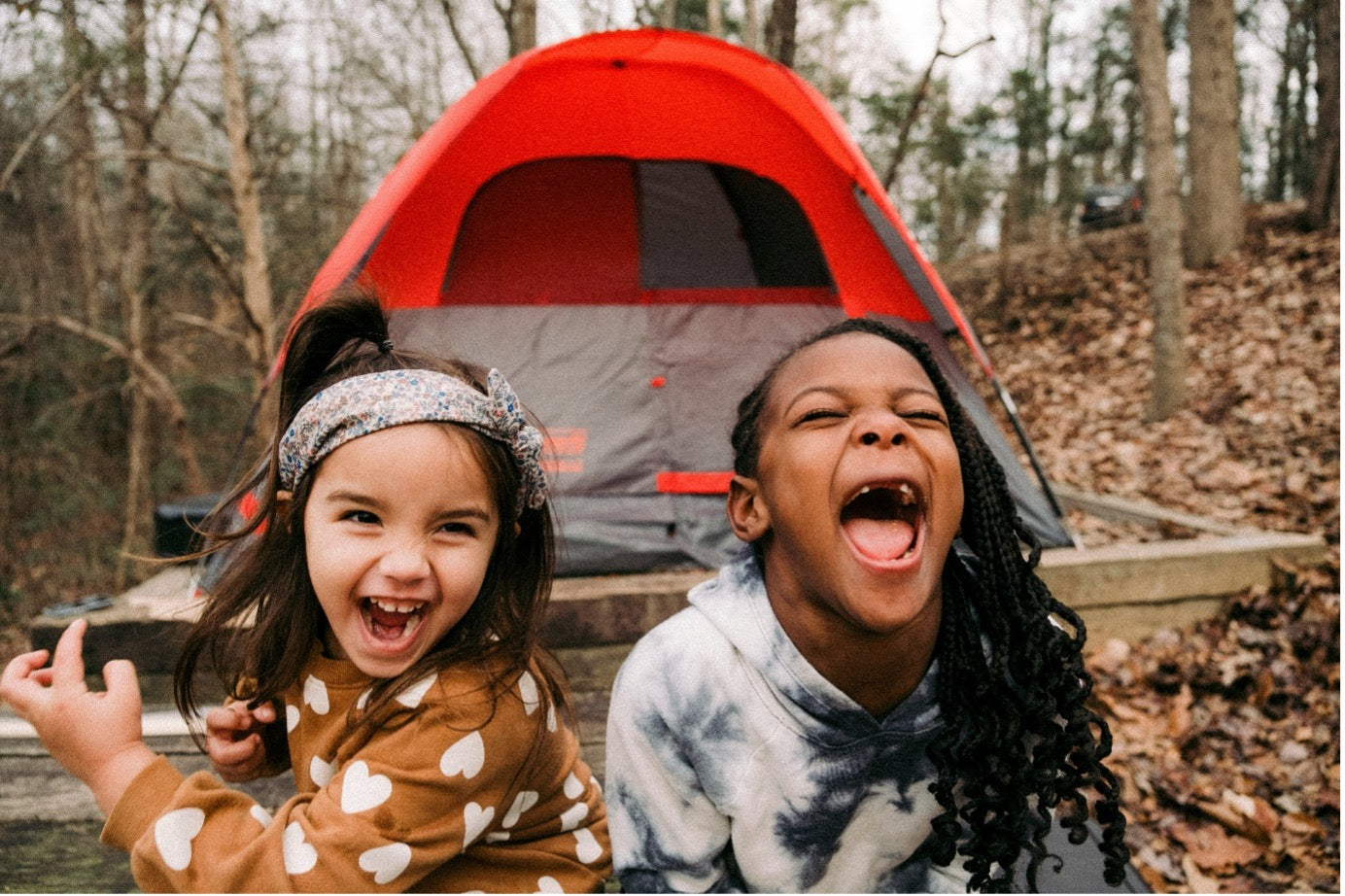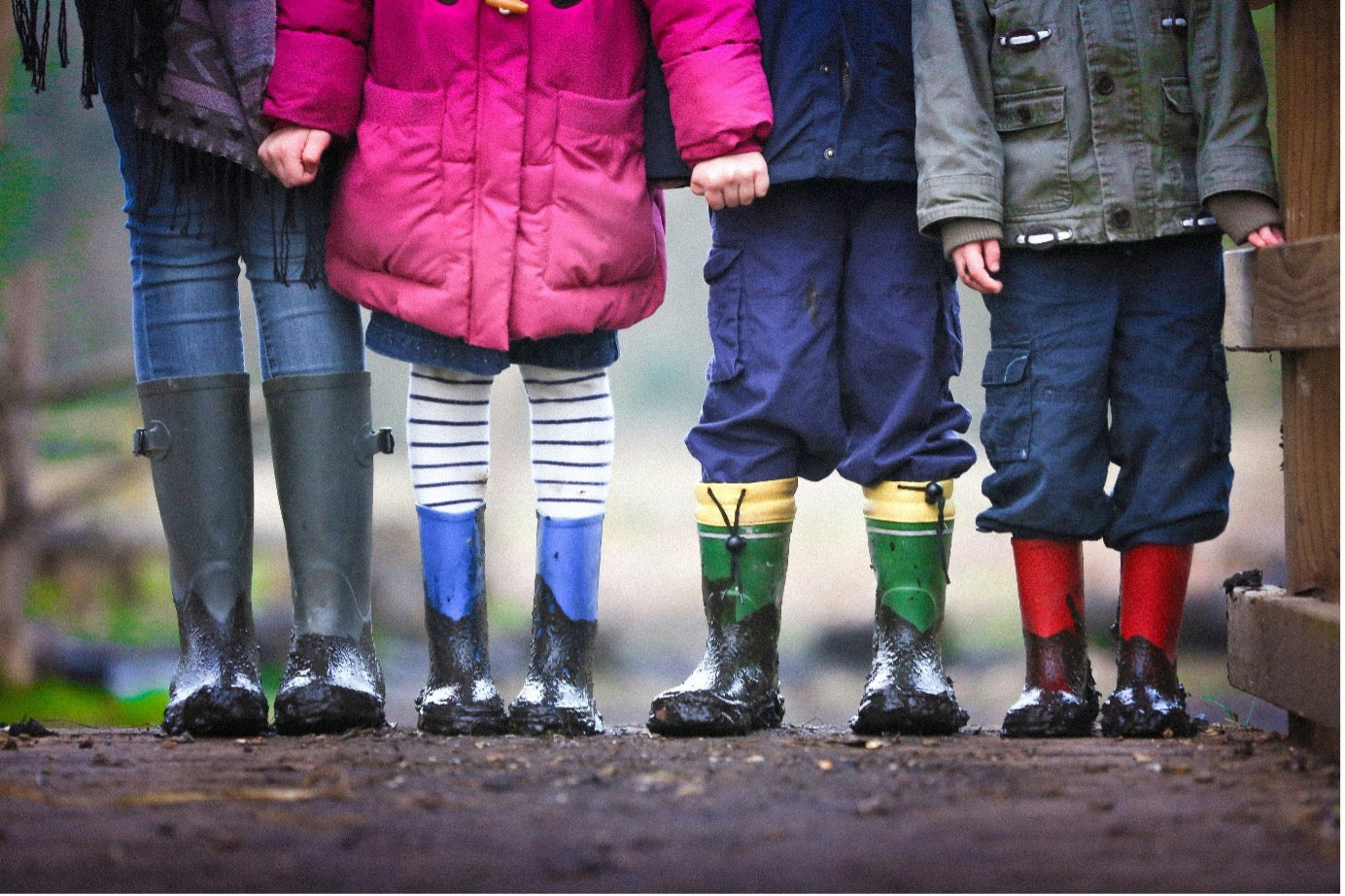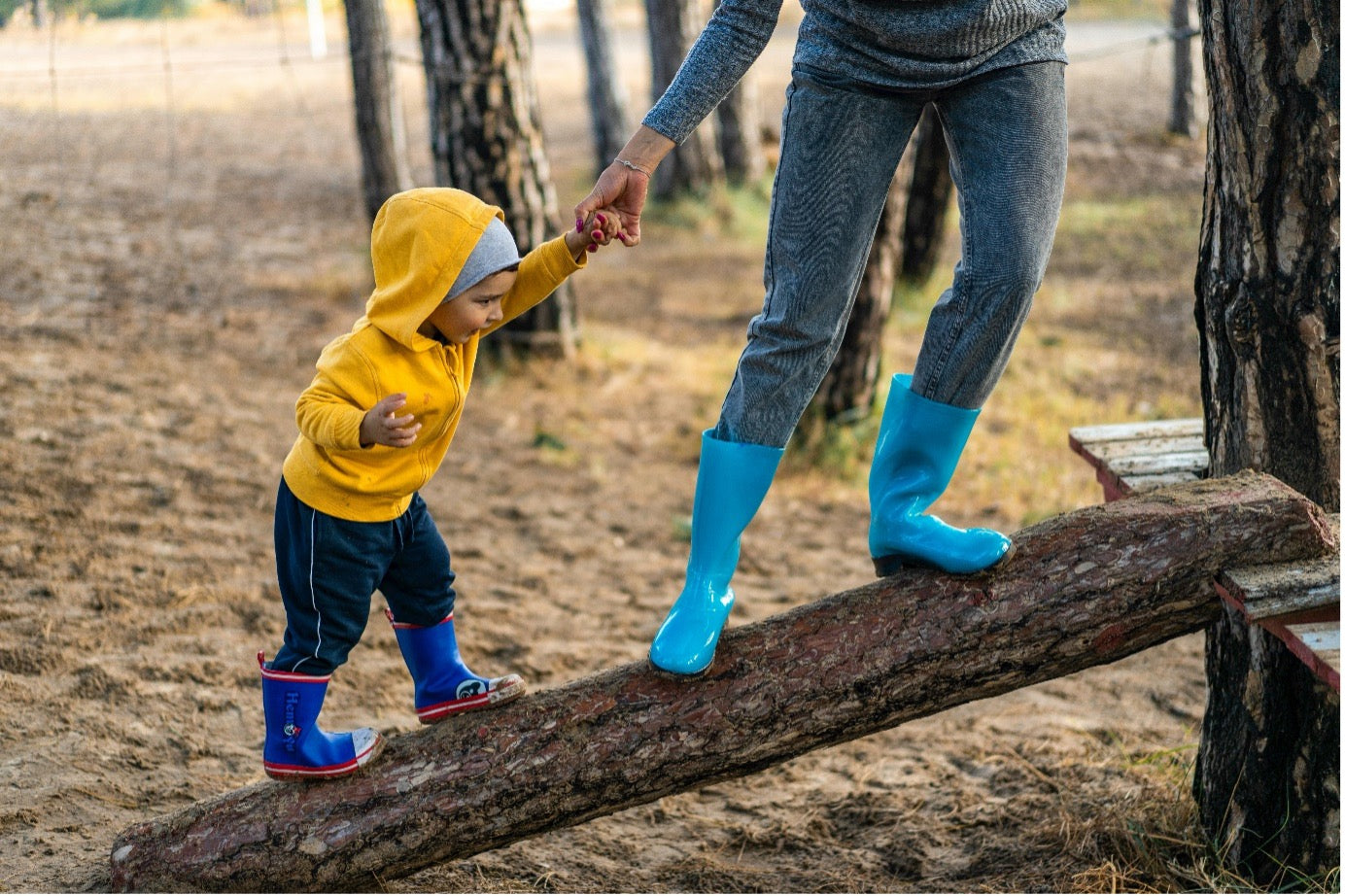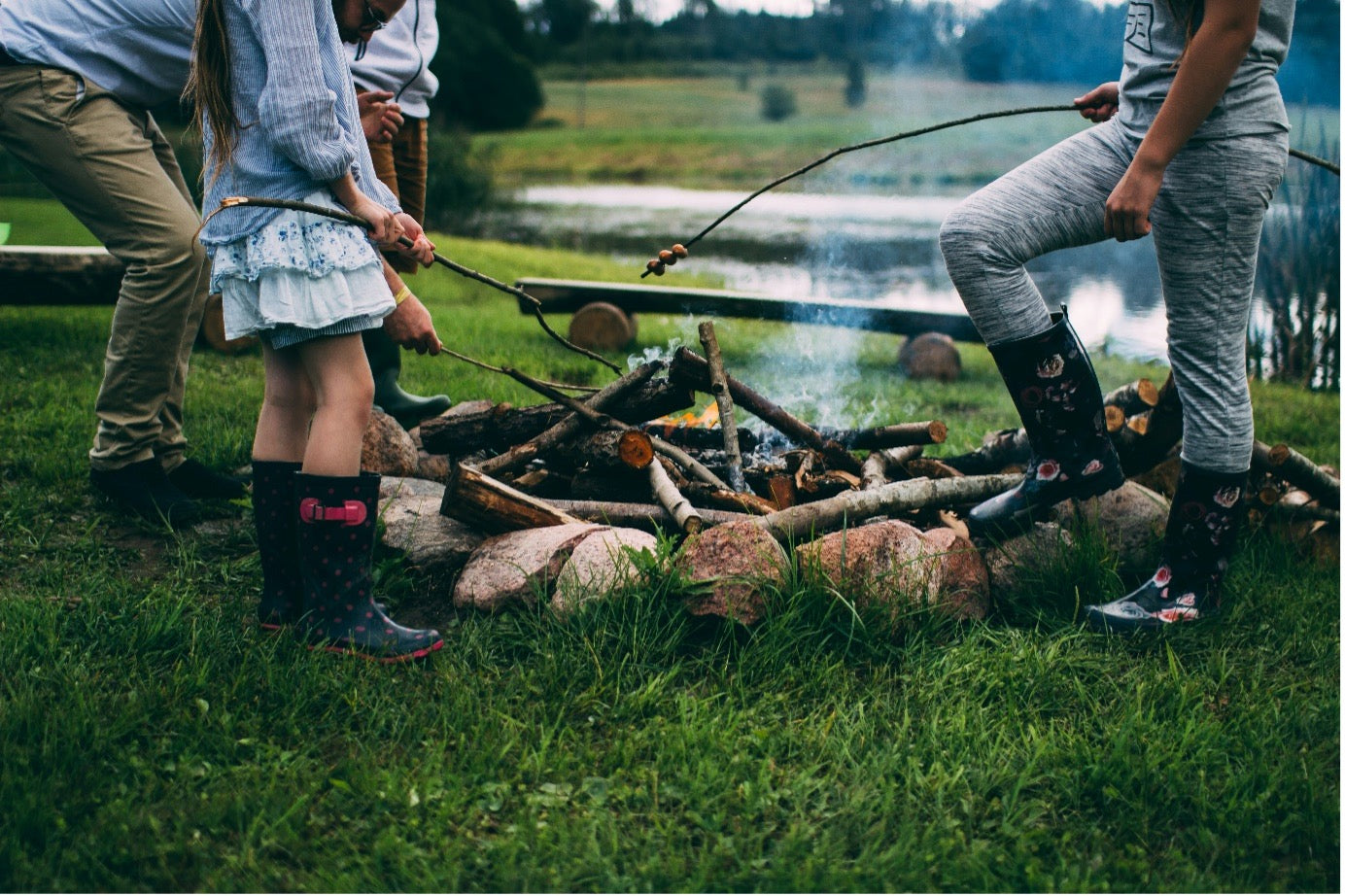Camping with kids: Tips, hacks, and what to pack
Embarking on a camping adventure with your little ones can be an enriching experience filled with unforgettable memories. However, it requires some careful planning to ensure a stress-free and enjoyable trip for the whole family. From keeping warm and creating comfortable sleeping arrangements to ensuring there’s entertainment no matter the weather, there’s a lot to consider!
In this comprehensive guide, we'll walk you through everything you need to know about camping with kids, from essential family camping checklists, to fun activities and hacks to make your adventure a breeze. We’ll cover:
Why you should take kids camping
Camping with kids can create lasting memories and foster a love for nature in young adventurers. It can contribute to a child’s physical, mental, and emotional development, and provides children with the opportunity to immerse themselves in the natural world, away from the distractions of technology and urban life. Spending time outdoors allows kids to explore, observe wildlife, and develop a deeper appreciation for the environment. In fact, connecting with nature has been shown to reduce stress, improve mood, and promote overall well-being (University of Plymouth).
Camping as an activity encourages children to embrace adventure and curiosity as they explore new landscapes, hike trails, and discover hidden treasures in the wilderness. Engaging in outdoor activities such as fishing, swimming, and stargazing promotes physical fitness, builds confidence, and instils a sense of wonder and awe in children as they encounter the beauty and diversity of the natural world.
Setting up tents, building campfires, and cooking meals outdoors require cooperation and resourcefulness, teaching children valuable life skills such as teamwork, problem solving, and self-reliance. On top of that, learning to navigate unfamiliar terrain and adapt to changing weather conditions also enhances their ability to overcome challenges and persevere in unfamiliar situations.
Camping provides families with the opportunity to disconnect from the distractions of everyday life and strengthen their bonds through shared experiences and quality time together. Whether roasting marshmallows around the campfire, telling stories under the stars, or embarking on outdoor adventures, camping with kids creates lasting memories. In today's digital age, it’s a welcome reprieve from constant screen time and electronic devices.
If you’re wondering where are the best campsites to take kids or what family-friendly festivals are out there, you can find a few of our favourites in our summer holiday camping blog post.
What to take camping with kids: a family camping checklist
Camping with kids can be a delightful adventure filled with outdoor exploration and family bonding. However, ensuring a smooth and enjoyable experience requires careful planning and packing.
The first step is to optimise your packing strategy ahead of time to streamline the camping experience and minimise stress. Pack essential items — such as bedding, clothing, and cooking supplies — in clear, labelled containers for easy access.
You might find it useful to utilise packing cubes or compression bags to maximise space in your vehicle and keep your belongings organised throughout the trip.
We recommend creating a checklist to ensure you don't forget any crucial items and consider packing a few extra supplies for emergencies or unexpected situations. Why not download our family camping checklist to take with you? We have plenty of other camping checklists for all sorts of trips, including glamping, festival camping, and wellbeing retreats.
Tents and sleeping gear
One of the most important parts of camping with kids is ensuring they have a comfortable and secure sleeping space. Invest in a spacious tent bell tent built to accommodate your family size, plus a few extra members to ensure a roomy experience. At Boutique Camping, we have 4, 6, 8, 10, and even 11-14 person tents to choose from, including the easy-to-pitch Nova dome which is ideal for campers of all experience levels.
For older kids, investing in an extra tent or inner tent can provide them with their own space and privacy, promoting a sense of independence and autonomy. This separation can help prevent sibling squabbles and give everyone a bit of personal space to unwind after a day of outdoor adventures. Be sure to set clear boundaries and rules for each sleeping area to maintain harmony during the trip.
Additionally, don't forget to pack sleeping bags and bedding appropriate for the weather conditions. Choose sleeping gear that offers sufficient warmth and insulation, especially if you're camping in cooler months. Ensure your little ones are raised off the floor, either on an air mattress, foam mat, or camp bed, as this can help significantly with temperature control as well as provide comfort. Extra blankets or duvets can also add an extra layer of comfort for children, especially if they’re not used to using a sleeping bag.
Extra lighting
Nighttime can be particularly challenging when camping with kids, especially when they need to navigate their way to the bathroom or if they feel anxious in the dark. To alleviate these concerns, bring along plenty of lighting options such as torches, headlamps, or battery powered lanterns. Consider placing a few night lights around the campsite (if allowed) to provide a soft, comforting glow during the night and help lead the way to the bathroom. They’ll also benefit from footwear they can easily slip on and off at night, such as wellies or clogs.
Clothing and footwear
The weather can be very unpredictable, especially here in the UK. Pack a variety of clothing options for your little ones that are suitable for all weather conditions, including lightweight and breathable fabrics for warm days and insulated layers for cooler evenings. Be sure to include packable waterproof jackets or ponchos to protect against rain showers, as well as sturdy shoes or boots for hiking and exploring rugged terrain. Don't forget to pack plenty of extra socks and underwear, too, as these tend to get dirty or wet quickly during outdoor activities.
First aid kit
Safety should always be a top priority when camping with kids, so make sure to pack a well-stocked first aid kit to handle any minor
injuries or emergencies. Fingers crossed you won’t need them, but essential items to include are bandages, adhesive tape, antiseptic wipes, tweezers, scissors, pain relievers, insect repellent, and any necessary medications for allergies or existing medical conditions. Familiarise yourself with the contents of the first aid kit and be prepared to administer basic first aid as needed.
Food and cooking supplies
Proper nutrition is essential for keeping kids energised and satisfied during outdoor adventures, so be sure to pack a variety of foods and snacks. Consider bringing along a camping stove or portable grill for cooking meals, along with pots, pans, utensils, and cooking supplies. Don't forget to include kid-friendly options such as hot dogs, marshmallows for roasting, and easy-to-make meals that children will enjoy. The BBC has a collection of recipes for family camping trips that may be useful.
Entertainment
While camping offers plenty of opportunities for outdoor exploration and adventure, it's also important to have activities and entertainment options to keep kids engaged during downtime. Pack a selection of board games, card games, books, and outdoor toys such as frisbees, balls, or kites. Or, read on to find ways to encourage children to explore nature by going on scavenger hunts, identifying wildlife, or participating in nature-themed crafts and activities.
Camping games and activities for kids
Keeping kids entertained during a camping trip is essential for a memorable and enjoyable experience. Here are some fun camping games for kids to keep boredom at bay.
Nature scavenger hunt
Engage children in exploring the natural surroundings by organising a nature scavenger hunt. Create a list of items commonly found in the area, such as pinecones, leaves of different shapes, wildflowers, or animal tracks. Provide each child with a list and a small bag to collect their treasures. Encourage them to use their observation skills and creativity while exploring the outdoors.
Campfire stories and songs
If your chose campsite allows fires, gather around the campfire in the evening for storytelling and singing. Share spooky ghost stories, funny anecdotes, or tales of adventure. Encourage children to take turns sharing their own stories or lead sing-alongs with their favourite campfire songs. Toasting marshmallows can add to the cosy atmosphere while enjoying the campfire entertainment.
DIY nature crafts
Get creative with nature-inspired crafts using materials found in the campground. Collect sticks, rocks, pinecones, and other natural objects to create artwork, sculptures, or ornaments. Children can make nature bracelets by stringing together colourful leaves or flowers, or they can paint rocks to create personalised souvenirs from the trip. Encourage them to use their imagination with these hands-on art projects.
Stargazing and constellation spotting
Take advantage of the clear night skies for stargazing and constellation spotting. Teach children about the different constellations and their stories while lying on blankets or camping chairs and use a stargazing app or a constellation guidebook to identify stars, planets, and celestial phenomena. Encourage children to make wishes upon shooting stars or to imagine their own stories inspired by the vastness of the universe.
Outdoor sports and exercises
Burn off energy and promote teamwork with outdoor sports and relay races. Set up a mini football field, volleyball net, or frisbee golf course for friendly competitions. Organise relay races such as sack races, three-legged races, or egg and-spoon races to keep kids active and engaged. Adjust the rules and difficulty levels based on the age and skill level of the participants, and don't forget to award small prizes or ribbons for participation and effort.
Tips, hacks, and advice
For stress-free camping with kids, incorporating some hacks, tips, and tricks can make all the difference.
Before heading out on your camping trip, consider setting up your tent in the backyard for a practice run. This allows young kids to become familiar with sleeping outdoors and may help alleviate any anxiety they may have about the experience. Use this opportunity to test out your gear, including sleeping bags, air mattresses, and lighting, ensuring everything is in working order before you embark on your trip.
Once you’re at the campsite, create a designated camping kitchen area that is easily accessible and organised, making meal prep and cooking a breeze. Set up a camping table for food preparation and invest in storage bins or crates to keep kitchen supplies, utensils, and ingredients neatly organised. Consider packing pre-prepared meals or easy-to-make recipes to minimise cooking time and cleanup efforts, allowing more time for family fun and relaxation around the campfire.
Finally, remember to embrace simplified living. Camping offers a unique opportunity to disconnect from the distractions of everyday life and get back-to-basics. Encourage kids to leave electronic devices behind and immerse themselves in nature, exploring the outdoors and engaging in creative play. Organise activities such as nature walks, scavenger hunts, and storytelling around the campfire, helping your family to foster a deeper connection with the natural world and each other.
By following this guide and preparing properly for your camping trip, you can ensure a safe, comfortable, and enjoyable outdoor experience. With the right gear and mindset, camping with kids can be rewarding for the whole family, and by flowing our tips and packing checklist, you'll be well-equipped to enjoy a stress free and memorable adventure in the great outdoors. Happy camping!
Looking for more camping advice or tips for getting the most out of your bell tent? Be sure the browse the rest of our guides and manuals which includes everything from wild camping and camping with dogs to folding a tent and getting it back into the bag.
